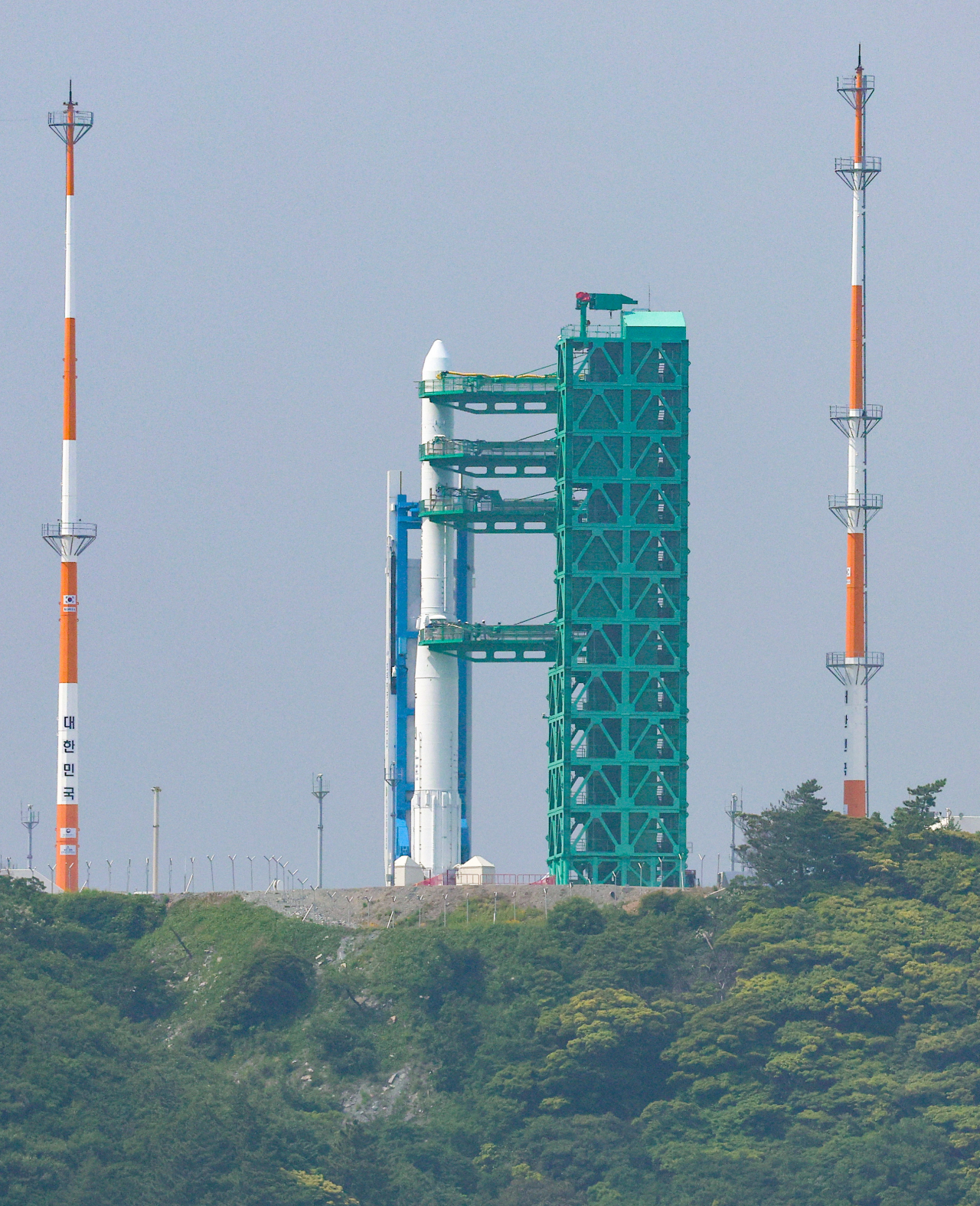Technical inspection of Nuri space rocket under way after postponed launch
By YonhapPublished : May 25, 2023 - 09:17

South Korean aerospace engineers have been inspecting the country's homegrown space rocket Nuri on Thursday following the last-minute cancellation of the scheduled launch over a computer glitch.
The launch management committee, which oversees the entire process, called off the launch of Nuri on Wednesday after the engineers detected a communications problem between a launch control computer and a launch pad facility control computer about three hours before liftoff.
The Ministry of Science and ICT and the Korea Aerospace Research Institute (KARI) said they will try to launch Nuri again after a thorough inspection as the problem has little to do with the rocket itself.
"The examination will be held through noon, and we will try again if the problem is solved," a ministry official said. "Otherwise, we will ask researchers and engineers how much time they need and decide future schedules."
So the rocket will remain erected on the launch pad at Naro Space Center in the southern coastal village of Goheung until the upcoming decision is made, the ministry said.
It is not the first time that Nuri's launch has been postponed due to technical issues.
In June last year, South Korea delayed its second launch for five days due to a technical glitch in the rocket's oxidizer tank sensor.
After the postponement, Nuri successfully blasted off from Naro Space Center and sent a dummy satellite into its target orbit as planned, making South Korea the seventh country in the world to have developed a space launch vehicle that can carry a more than 1-ton satellite, after Russia, the United States, France, China, Japan and India.
The country has secured the key independent technology for developing and launching space rockets carrying homegrown satellites, opening up a new era in the country's space program.
The 2 trillion-won ($1.52 billion) Nuri project that began in 2010 will continue until 2027, with three additional rocket launches.
On the third attempt, Nuri will carry eight payload satellites, including the country's second next-generation small satellite, the NEXTSAT-2, and put them into orbit.
The NEXTSAT-2 will be released 783 seconds after liftoff, and the other seven will be deployed at 20-second intervals. (Yonhap)








![[Graphic News] More Koreans say they plan long-distance trips this year](http://res.heraldm.com/phpwas/restmb_idxmake.php?idx=644&simg=/content/image/2024/04/17/20240417050828_0.gif&u=)
![[KH Explains] Hyundai's full hybrid edge to pay off amid slow transition to pure EVs](http://res.heraldm.com/phpwas/restmb_idxmake.php?idx=644&simg=/content/image/2024/04/18/20240418050645_0.jpg&u=20240419100350)






![[From the Scene] Monks, Buddhists hail return of remains of Buddhas](http://res.heraldm.com/phpwas/restmb_idxmake.php?idx=652&simg=/content/image/2024/04/19/20240419050617_0.jpg&u=20240419175937)

![[KH Explains] Hyundai's full hybrid edge to pay off amid slow transition to pure EVs](http://res.heraldm.com/phpwas/restmb_idxmake.php?idx=652&simg=/content/image/2024/04/18/20240418050645_0.jpg&u=20240419100350)

![[Today’s K-pop] Illit drops debut single remix](http://res.heraldm.com/phpwas/restmb_idxmake.php?idx=642&simg=/content/image/2024/04/19/20240419050612_0.jpg&u=)